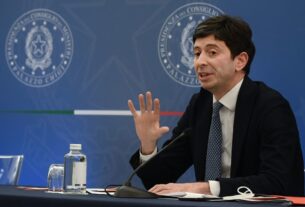The head of Amnesty International’s Ukraine arm resigned after the human-rights organization blamed Kyiv for endangering civilians and violating international laws with its wartime tactics.
The organization issued a report on Thursday accusing Ukraine’s military forces of violating international humanitarian laws and endangering civilians with tactics that include establishing bases and operating weapons systems in schools, hospitals and other populated residential areas.
Oksana Pokalchuk, head of Amnesty International Ukraine, said in a Facebook post late Friday that the report “became a tool of Russian propaganda.” Pokalchuk said she decided to leave due to disagreement on values with the leadership of Amnesty International.
Pokalchuk said that Amnesty International’s office in Ukraine consistently asked for the report to take into account the position of the country’s Defense Ministry. However, when the group eventually reached out to the ministry, Ukrainian officials were given very little time to respond, she said. Amnesty said on Thursday that it contacted the Defense Ministry on July 29.
“As a result, unwittingly, the organization created material that sounded like support for Russian narratives,” Pokalchuk wrote. “Seeking to protect civilians, this research instead became a tool of Russian propaganda.”
Thursday’s report sparked fury in Kyiv. Top officials including Ukrainian President Volodymyr Zelenskyy dismissed it. Zelenskyy accused Amnesty International of an “attempt to grant amnesty to the terrorist state and to shift blame from the aggressor to the victim of aggression.”
When the report was published, Pokalchuk said that Amnesty’s Ukraine office had not been involved in its preparation.
In an emailed statement on Saturday, Amnesty International said: “Both our investigations into Russian war crimes, and those into the Ukrainian military’s tactics, were carried out by the same experts from Amnesty International’s Crisis Response Programme. Their findings reflected the same rigorous research standards and due diligence processes as all of Amnesty International’s work.”
Saying it has “clearly and categorically condemned Russia’s invasion of Ukraine,” the organization said that “we also believe it is crucial to respond impartially.”
When it contacted the Ukrainian government on July 29, Amnesty said it “asked them to provide any response by August 3, but received no response.”




